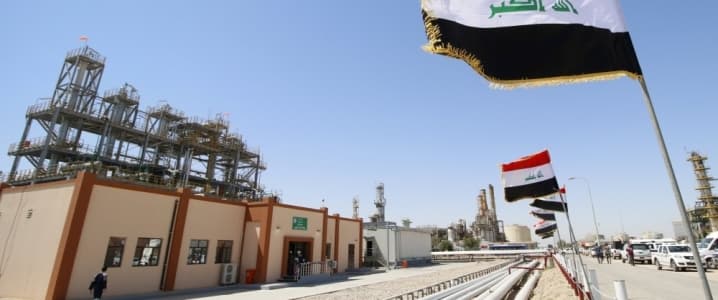U.S. sanctions on Iran’s oil industry were bound to be good news for fellow OPEC producers in the Middle East even if it wouldn’t have been good manners to acknowledge it openly. Yet Saudi Arabia and Iraq were quick to assure market players that they were ready to step in and replace lost Iranian supply. While Saudi Arabia has been wary of reversing its production cuts, however, Iraq has wasted no time in raising its crude oil exports.
IHS Markit reports that Iraq shipped an average 1.045 million bpd of crude to India over the first five months of the year and another 870,000 bpd to China—the two biggest buyers of Iranian crude that were kind of left hanging after the sanction waiver that Washington had granted them and another six importers of Iranian crude expired.
Europe was also a large buyer of Iraqi crude, taking in an average 615,000 bpd between January and May this year. The United States, on the other hand, reduced its intake of Iraqi oil significantly: the latest data from the Energy Information Administration said that the U.S. imported an average 275,000 bpd of Iraqi crude in March, down from 422,000 bpd in February and 429,000 bpd in January. The average for January to May, according to IHS Markit, stood at 209,000 bpd.
It seems that while the pattern of buyers may be shifting, the export trend for Iraqi oil remains upward. In May, total exports booked by the central government and the Kurdistan Regional Government amounted to 4.086 million bpd, Iraqi media reported earlier this month. This was the second-highest monthly export rate on record.
Yet this is just the beginning. Iraq has ambitious plans for its oil future. In April this year, Iraq’s new oil minister, Thamer Ghadhban, said the country had enough oil production capacity to boost output to as much as 6 million bpd if need be, although right now he did not see a pressing need for more OPEC production despite the removal of U.S. sanction waivers for Iranian oil importers. Related: Papua New Guinea Looks To Double LNG Production
Indeed, it may have the capacity, IHS Markit noted last year in a report on Iraq’s oil industry. Iraq, the study noted, has a production capacity of 7 million bpd, but chances are its actual production will only grow marginally over the next decade, to about 5 million bpd, and not just because of the still difficult political and economic situation. Iraq’s oil industry has a purely technical problem: infrastructure.
Baghdad has tried to address this problem by seeking help from foreign companies. In early May, Prime Minister Adel Abdul Mahdi told media that the government was close to signing a megadeal with Exxon and PetroChina to develop additional oil production capacity in the south of the country. The deal had a value of US$53 billion with government revenue for its 30-year duration estimated at up to US$400 billion.
Later the same month, however, Exxon evacuated staff from one of Iraq’s largest fields, West Qurna 1, citing security concerns. The move sparked a strong verbal reaction from Baghdad, which can’t afford to have its security situation doubted as it pursues its oil industry boost plans. The evacuation followed a warning from U.S. authorities about an imminent attack from Iran. Baghdad had to promise extra security to Exxon before its staff returned to the field.
Reaching its ambitious production goals will not be easy for Iraq: it is caught in the middle between Iran and the United States, with the former its neighbor with which it tries to maintain good relations and the latter a military ally that Baghdad also has to contend with. Maintaining a balance in the increasingly difficult situation will be vital for Iraq’s oil plans.
By Irina Slav for Oilprice.com
ADVERTISEMENT
More Top Reads From Oilprice.com:
- An Opportunity In California’s Overlooked Oil Sector
- Oil Is On The Brink Of A Bear Market
- OPEC+ Has Only One Choice As Oil Prices Slide


















